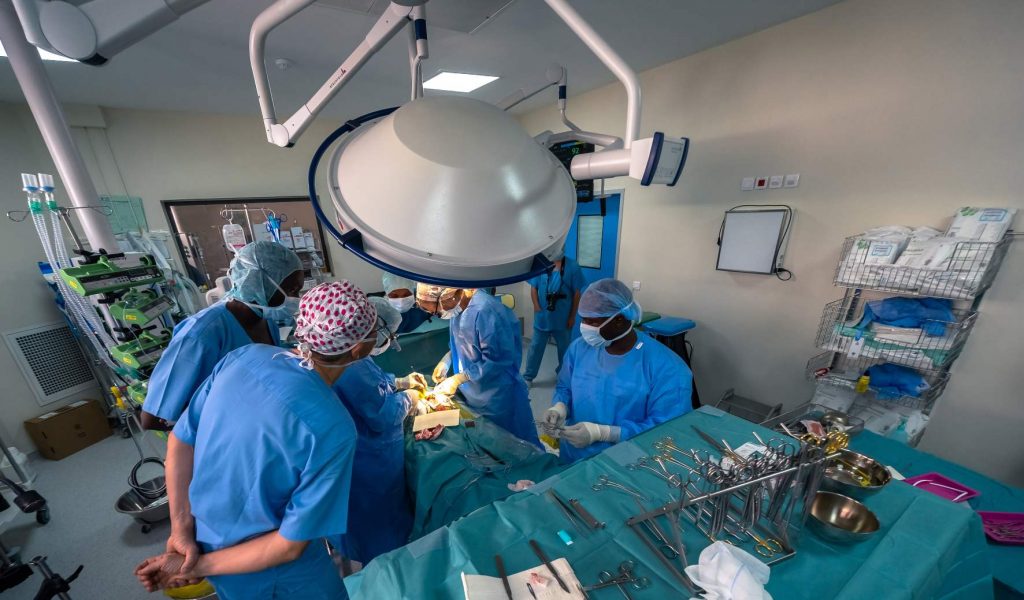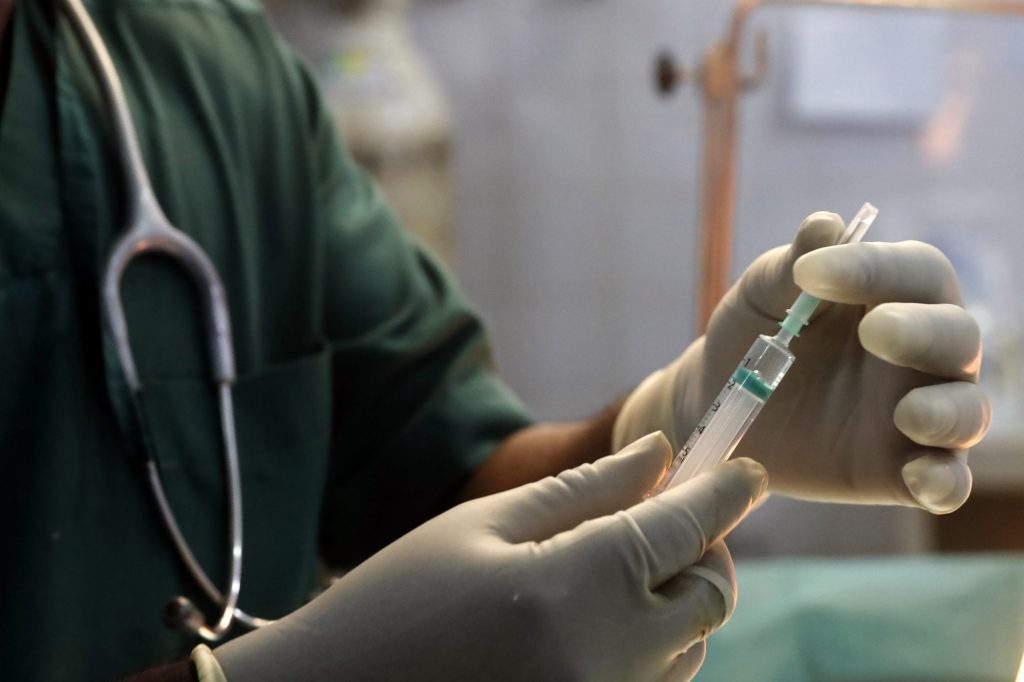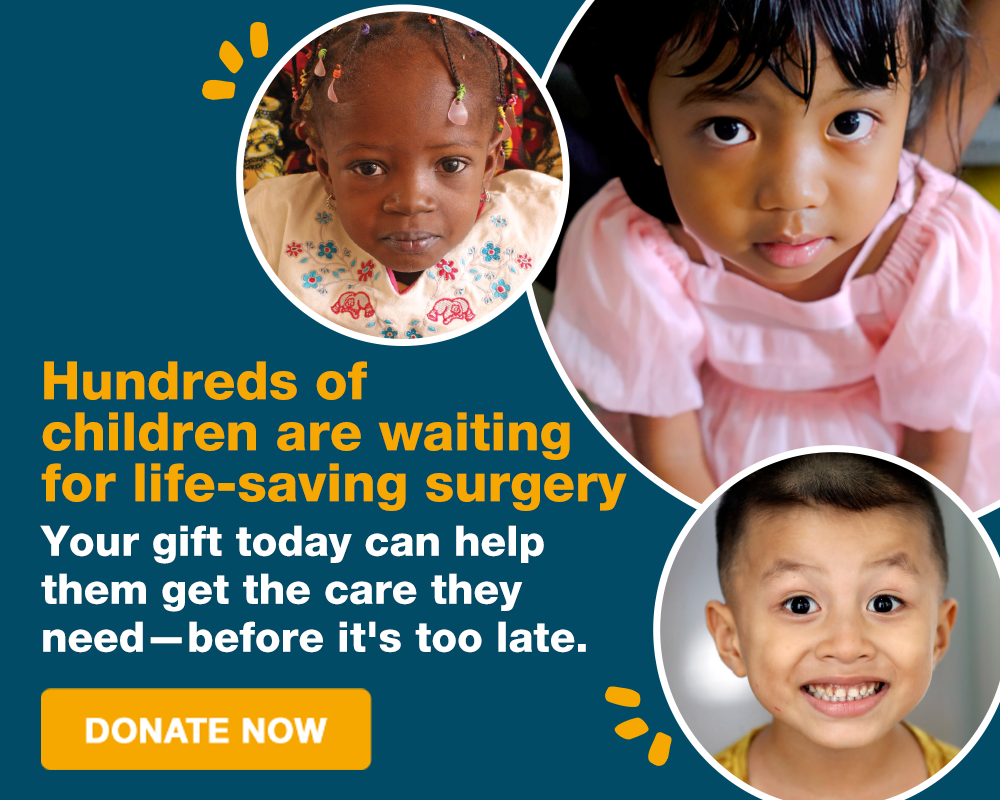
Anesthesiology Residency Programs
An anesthesiologist is present before, during, and after surgical procedures playing an essential role for patients and doctors alike. Throughout the tenure of United Surgeons for Children, our teams have conducted surgical missions across the globe treating patients and training local staff. In all of our efforts, in order to make this work a long-term success, we must bring along experienced anesthesiologists. Learn about our anesthesiology residency programs which helps train the next generation of anesthesiologists in developing countries.

Why Anesthesiology is Important
In a medical procedure, an anesthesiologist is in charge of choosing the most appropriate technique to put the patient to sleep. To make this decision, they must be aware of any heart, lung, liver, or kidney problems. This often includes evaluating the patient’s condition to determine if they can receive anesthesia. When treating young children, the anesthesiologist needs to be a calming presence before the child goes into surgery.
In other words, the anesthesiologist is a crucial part of any surgical procedure. According to USFC’s anesthesiology expert, Dr. Adrien De Cock, before the use of modern anesthetics, patients were more likely to die while undergoing treatment than from the disease they were being treated for. Today, as the developing world gains access to modern medical equipment, they also gain access to modern anesthetics.

How USFC Supports Anesthesiology Training Programs
A core component of United Surgeons for Children’s mission to improve global healthcare is making sure professionals are well-trained. Without adequate medical training, professionals can’t provide the high standard of care that everyone deserves. As a result, USFC has developed anesthesiology training programs that are similar to anesthesiology residency programs. These programs give aspiring medical staff access to world-class treatments, equipment, and mentors. Our anesthesiology training program involves the following:
Bringing Students to World-Class Medical Facilities
As mentioned earlier, USFC’s anesthesiology expert, Dr. De Cock, explains that countries in the developing world “don’t have access to courses, continuing education, or seminars that are available in more developed countries.” Because of this reality he leads anesthesiology training programs with Dr. Émilie Langlais, another anesthesiology expert. These courses bring local medical staff from developing countries to Europe for training.
Dr. De Cock feels that exposing students to a new atmosphere outside of their home country is beneficial to their training. Further to that point, this experience teaches staff how to operate new technology. This access, to high quality equipment, allows medical professionals in the program to gain valuable insight when treating a patient. Dr. De Cock firmly believes that new technology bridges the knowledge gap and when professionals from developing countries are trained to use the latest equipment, they can provide a higher standard of care.
Collaborating with Local Teams
An equally important component of the anesthesiology residency training program regards nurturing the expertise of local medical teams. While discussing partnerships with local medical teams, Dr. Langlais says, “We work in collaboration. We must observe how they [local medical teams] work with the resources they have on-site.”
Although training with the latest equipment is important, in many countries, there is no access to such technology. And, even when a local hospital has the funds to purchase such equipment, it is often too difficult to coordinate the technology shipment. In these cases, it’s important to learn to work with what is available. Dr. Langlais recommends: “You try to offer ideas for improvement and suggest different techniques.”
Empowering Students to Take the Next Step
Above all, the goals of USFC’s medical training programs are to transfer skills and disseminate knowledge. When this chain of hope is supported, health improves, and lives are changed. In the final step of the training process, Dr. De Cock feels it’s important for students to receive hands-on experience in the field.
When describing the on-site training, Dr. De Cock has said, “my role is to ‘teach at the patient’s bedside’. That is to say, teaching while we provide treatment. Every day in the operating room is another opportunity to learn.”
Dr. De Cock has trained anesthesiology teams ahead of surgery to address esophageal stenosis, heart defects, cleft lip, and much more.

How You Can Support Anesthesiology Residency Training
All across the world, there are people in need of quality healthcare. Most importantly, people are willing to take up the heroic mission of treating these patients. USFC strives to continue to treat patients in need and to train the next generation of medical professionals. When you empower others to make the most of their skills, you create the first link in the chain of hope. Your contribution to USFC can help build on this chain. We hope that you’ll consider donating.
